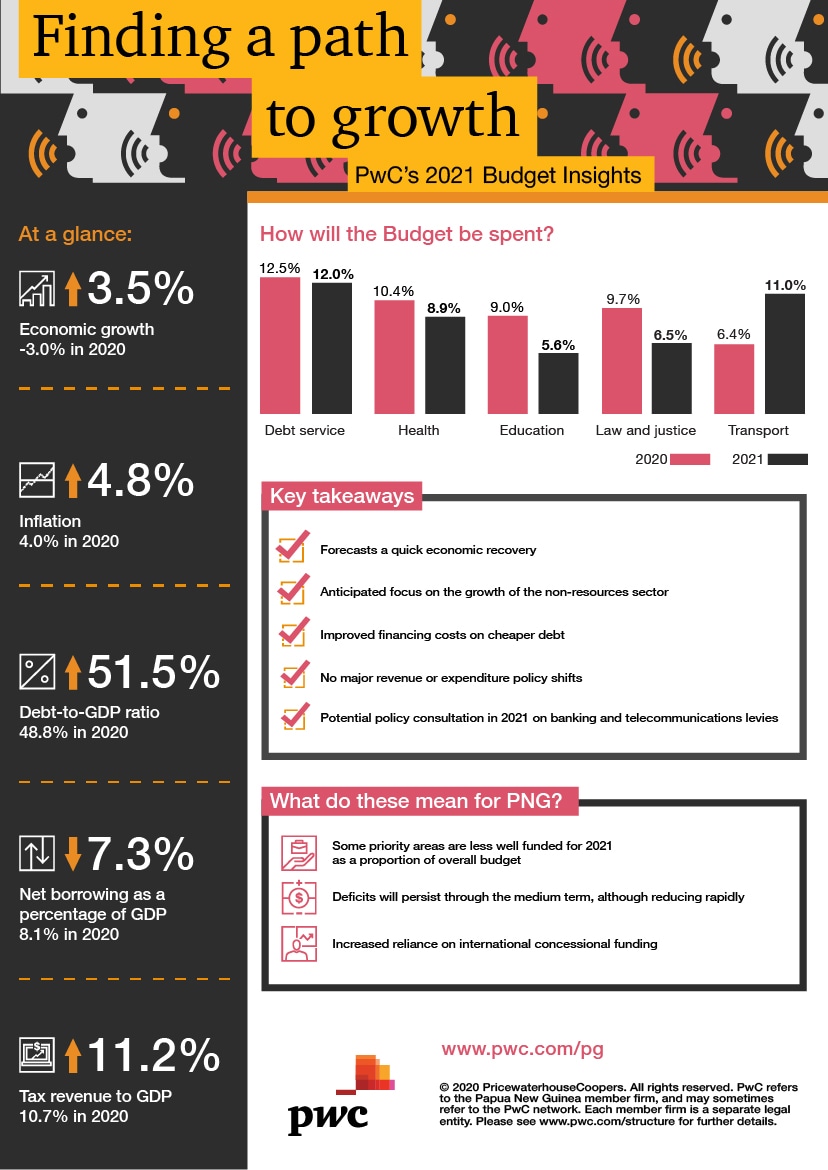Budget 2021: Finding a path to growth
Budgets tell stories: what happened last year? were expectations met? how will things be different next year? what can we expect our economic fortunes to be over the coming years?
The stories about 2020 that are embedded in the 2021 Budget are remarkable on any measure. At this time last year, who could have predicted that Papua New Guinea (PNG) would be rocked by:
- a global oil price war, with a 65% quarterly fall in the price of oil in the March quarter
- a decline in global economic activity as COVID-19 rolled around the globe. This was reflected in:
- a progressive global slowdown of economic activity that put further downward pressure on PNG’s export opportunities
domestic restrictions on activity to suppress the COVID-19 virus. While the number of confirmed COVID-19 cases in PNG remained low until July, economic activity was dulled by social distancing obligations and restrictions on movement imposed in Port Moresby as cases rapidly increased.
For a country so dependent on the export of commodities, an oil war and a slow-down in global economic activity provided an incredible challenge, only compounded by the domestic challenges of a pandemic.
But for once, PNG is not alone in facing these challenges; all countries, to varying degrees, face the prospect of lower growth, more government debt and higher unemployment.
Even though the global environment has shifted, the PNG Government still holds out ten Budget and Reform priorities (see Box 1) against which it wants to be judged, presumably with an acknowledgement that expectations need to be reset as to what can actually be achieved in the midst of a global downturn.
In this paper we briefly consider:
how the international environment has changed over the past year, and the prospects for improvement as outlined in the Budget (chapter 1)
the PNG Government’s revised fiscal position (chapter 2)
specific tax changes set out in the Budget (chapter 3).




Download PwC's 2021 Budget Commentary
Learn about our insights on the economic and tax impacts of the 2021 Budget
Watch our webcast